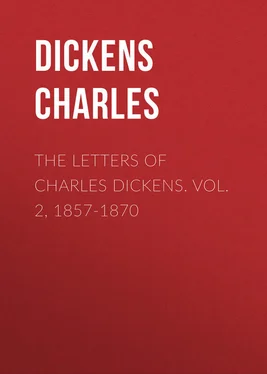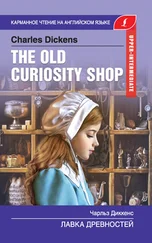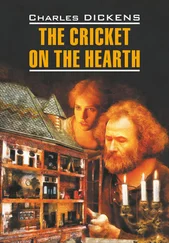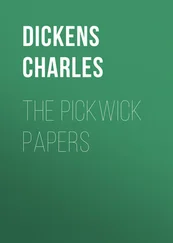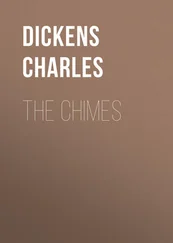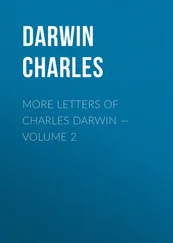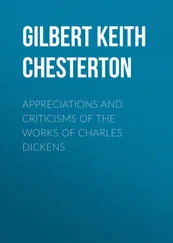Чарльз Диккенс - The Letters of Charles Dickens. Vol. 2, 1857-1870
Здесь есть возможность читать онлайн «Чарльз Диккенс - The Letters of Charles Dickens. Vol. 2, 1857-1870» — ознакомительный отрывок электронной книги совершенно бесплатно, а после прочтения отрывка купить полную версию. В некоторых случаях можно слушать аудио, скачать через торрент в формате fb2 и присутствует краткое содержание. Жанр: foreign_antique, foreign_prose, на английском языке. Описание произведения, (предисловие) а так же отзывы посетителей доступны на портале библиотеки ЛибКат.
- Название:The Letters of Charles Dickens. Vol. 2, 1857-1870
- Автор:
- Жанр:
- Год:неизвестен
- ISBN:нет данных
- Рейтинг книги:3 / 5. Голосов: 1
-
Избранное:Добавить в избранное
- Отзывы:
-
Ваша оценка:
- 60
- 1
- 2
- 3
- 4
- 5
The Letters of Charles Dickens. Vol. 2, 1857-1870: краткое содержание, описание и аннотация
Предлагаем к чтению аннотацию, описание, краткое содержание или предисловие (зависит от того, что написал сам автор книги «The Letters of Charles Dickens. Vol. 2, 1857-1870»). Если вы не нашли необходимую информацию о книге — напишите в комментариях, мы постараемся отыскать её.
The Letters of Charles Dickens. Vol. 2, 1857-1870 — читать онлайн ознакомительный отрывок
Ниже представлен текст книги, разбитый по страницам. Система сохранения места последней прочитанной страницы, позволяет с удобством читать онлайн бесплатно книгу «The Letters of Charles Dickens. Vol. 2, 1857-1870», без необходимости каждый раз заново искать на чём Вы остановились. Поставьте закладку, и сможете в любой момент перейти на страницу, на которой закончили чтение.
Интервал:
Закладка:
We meant, as I said in a letter to Katie, to go to Queenstown yesterday and bask on the seashore. But there is always so much to do that we couldn't manage it after all. We expect a tremendous house to-morrow night as well as to-day; and Arthur is at the present instant up to his eyes in business (and seats), and, between his regret at losing to-night, and his desire to make the room hold twice as many as it will hold, is half distracted. I have become a wonderful Irishman – must play an Irish part some day – and his only relaxation is when I enact "John and the Boots," which I consequently do enact all day long. The papers are full of remarks upon my white tie, and describe it as being of enormous size, which is a wonderful delusion, because, as you very well know, it is a small tie. Generally, I am happy to report, the Emerald press is in favour of my appearance, and likes my eyes. But one gentleman comes out with a letter at Cork, wherein he says that although only forty-six I look like an old man. He is a rum customer, I think.
The Rutherfords are living here, and wanted me to dine with them, which, I needn't say, could not be done; all manner of people have called, but I have seen only two. John has given it up altogether as to rivalry with the Boots, and did not come into my room this morning at all. Boots appeared triumphant and alone. He was waiting for me at the hotel-door last night. "Whaa't sart of a hoose, sur?" he asked me. "Capital." "The Lard be praised fur the 'onor o' Dooblin!"
Arthur buys bad apples in the streets and brings them home and doesn't eat them, and then I am obliged to put them in the balcony because they make the room smell faint. Also he meets countrymen with honeycomb on their heads, and leads them (by the buttonhole when they have one) to this gorgeous establishment and requests the bar to buy honeycomb for his breakfast; then it stands upon the sideboard uncovered and the flies fall into it. He buys owls, too, and castles, and other horrible objects, made in bog-oak (that material which is not appreciated at Gad's Hill); and he is perpetually snipping pieces out of newspapers and sending them all over the world. While I am reading he conducts the correspondence, and his great delight is to show me seventeen or eighteen letters when I come, exhausted, into the retiring-place. Berry has not got into any particular trouble for forty-eight hours, except that he is all over boils. I have prescribed the yeast, but ineffectually. It is indeed a sight to see him and John sitting in pay-boxes, and surveying Ireland out of pigeon-holes.
Same Evening before Bed-time.Everybody was at "Little Dombey" to-day, and although I had some little difficulty to work them up in consequence of the excessive crowding of the place, and the difficulty of shaking the people into their seats, the effect was unmistakable and profound. The crying was universal, and they were extraordinarily affected. There is no doubt we could stay here a week with that one reading, and fill the place every night. Hundreds of people have been there to-night, under the impression that it would come off again. It was a most decided and complete success.
Arthur has been imploring me to stop here on the Friday after Limerick, and read "Little Dombey" again. But I have positively said "No." The work is too hard. It is not like doing it in one easy room, and always the same room. With a different place every night, and a different audience with its own peculiarity every night, it is a tremendous strain. I was sick of it to-day before I began, then got myself into wonderful train.
Here follows a dialogue (but it requires imitation), which I had yesterday morning with a little boy of the house – landlord's son, I suppose – about Plorn's age. I am sitting on the sofa writing, and find him sitting beside me.
Inimitable. Holloa, old chap.
Young Ireland. Hal-loo!
Inimitable ( in his delightful way ). What a nice old fellow you are. I am very fond of little boys.
Young Ireland. Air yer? Ye'r right.
Inimitable. What do you learn, old fellow?
Young Ireland ( very intent on Inimitable, and always childish, except in his brogue ). I lairn wureds of three sillibils, and wureds of two sillibils, and wureds of one sillibil.
Inimitable ( gaily ). Get out, you humbug! You learn only words of one syllable.
Young Ireland ( laughs heartily ). You may say that it is mostly wureds of one sillibil.
Inimitable. Can you write?
Young Ireland. Not yet. Things comes by deegrays.
Inimitable. Can you cipher?
Young Ireland ( very quickly ). Wha'at's that?
Inimitable. Can you make figures?
Young Ireland. I can make a nought, which is not asy, being roond.
Inimitable. I say, old boy, wasn't it you I saw on Sunday morning in the hall, in a soldier's cap? You know – in a soldier's cap?
Young Ireland ( cogitating deeply ). Was it a very good cap?
Inimitable. Yes.
Young Ireland. Did it fit unkommon?
Inimitable. Yes.
Young Ireland. Dat was me!
There are two stupid old louts at the room, to show people into their places, whom John calls "them two old Paddies," and of whom he says, that he "never see nothing like them (snigger) hold idiots" (snigger). They bow and walk backwards before the grandees, and our men hustle them while they are doing it.
We walked out last night, with the intention of going to the theatre; but the Piccolomini establishment (they were doing the "Lucia") looked so horribly like a very bad jail, and the Queen's looked so blackguardly, that we came back again, and went to bed. I seem to be always either in a railway carriage, or reading, or going to bed. I get so knocked up, whenever I have a minute to remember it, that then I go to bed as a matter of course.
I send my love to the noble Plorn, and to all the boys. To dear Mamie and Katie, and to yourself of course, in the first degree. I am looking forward to the last Irish reading on Thursday, with great impatience. But when we shall have turned this week, once knocked off Belfast, I shall see land, and shall (like poor Timber in the days of old) "keep up a good heart." I get so wonderfully hot every night in my dress clothes, that they positively won't dry in the short interval they get, and I have been obliged to write to Doudney's to make me another suit, that I may have a constant change.
Ever, my dearest Georgy, most affectionately.When I went down to the Rotunda at Dublin on Thursday night, I said to Arthur, who came rushing at me: "You needn't tell me. I know all about it." The moment I had come out of the door of the hotel (a mile off), I had come against the stream of people turned away. I had struggled against it to the room. There, the crowd in all the lobbies and passages was so great, that I had a difficulty in getting in. They had broken all the glass in the pay-boxes. They had offered frantic prices for stalls. Eleven bank-notes were thrust into that pay-box (Arthur saw them) at one time, for eleven stalls. Our men were flattened against walls, and squeezed against beams. Ladies stood all night with their chins against my platform. Other ladies sat all night upon my steps. You never saw such a sight. And the reading went tremendously! It is much to be regretted that we troubled ourselves to go anywhere else in Ireland. We turned away people enough to make immense houses for a week.
We arrived here yesterday at two. The room will not hold more than from eighty to ninety pounds. The same scene was repeated with the additional feature, that the people are much rougher here than in Dublin, and that there was a very great uproar at the opening of the doors, which, the police in attendance being quite inefficient and only looking on, it was impossible to check. Arthur was in the deepest misery because shillings got into stalls, and half-crowns got into shillings, and stalls got nowhere, and there was immense confusion. It ceased, however, the moment I showed myself; and all went most brilliantly, in spite of a great piece of the cornice of the ceiling falling with a great crash within four or five inches of the head of a young lady on my platform (I was obliged to have people there), and in spite of my gas suddenly going out at the time of the game of forfeits at Scrooge's nephew's, through some Belfastian gentleman accidentally treading on the flexible pipe, and needing to be relighted.
Читать дальшеИнтервал:
Закладка:
Похожие книги на «The Letters of Charles Dickens. Vol. 2, 1857-1870»
Представляем Вашему вниманию похожие книги на «The Letters of Charles Dickens. Vol. 2, 1857-1870» списком для выбора. Мы отобрали схожую по названию и смыслу литературу в надежде предоставить читателям больше вариантов отыскать новые, интересные, ещё непрочитанные произведения.
Обсуждение, отзывы о книге «The Letters of Charles Dickens. Vol. 2, 1857-1870» и просто собственные мнения читателей. Оставьте ваши комментарии, напишите, что Вы думаете о произведении, его смысле или главных героях. Укажите что конкретно понравилось, а что нет, и почему Вы так считаете.
